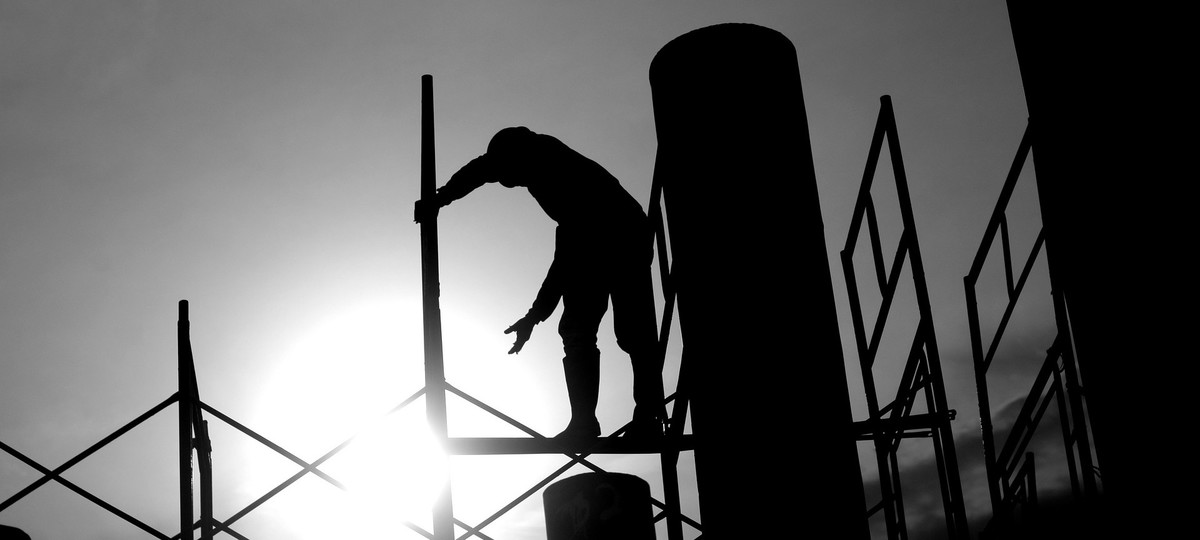
Father's Day is this weekend, and I find myself thinking in particular about the men who build things in this country.
Perhaps it's because there is a national conversation going on about the "working class" in America. The statistics are appalling: rising rates of poverty, homelessness, addiction, broken families and early death.
There are those addressing these issues with honesty and sensitivity. J.D. Vance's "Hillbilly Elegy" is a best-seller. Professor Joan C. Williams' recent book, "White Working Class: Overcoming Class Cluelessness in America," is garnering attention. Years before most others noticed, Charles Murray wrote "Coming Apart: The State of White America."
But the truths they reveal are often stifled by condescending "narratives" pigeonholing people into boxes that — at least until the November election — were conveniently dismissable. (We'll call them the "Ignorable Deplorables.") Alex MacGillis and Propublica wrote a solid piece in the Atlantic magazine last September in which they noted that working-class whites — once considered the backbone of the nation — are now viewed with "barely suppressed contempt" by the country's self-appointed elite. (This prescient warning was issued two months before Donald Trump was elected president, and it's only gotten worse since.) Charles Murray has been chased off college campuses. And Professor Williams was subjected to an insipid and ignorant interview with Isaac Chotiner in Slate last week. (Williams tries to tell Chotiner that the economic woes of middle-class Americans cannot be dismissed as mere racism; Chotiner is too enamoured with his worldview to appreciate what she is saying.)
I don't understand this shift in attitude. The contributions of those we call "middle class" or "working class" are everywhere around us.
Take construction, for example. I teach at the University of Notre Dame, where we have plenty of construction going on at the moment. Every day, as I walk into the building where I read and talk for a living, I walk past men (and some women, certainly — but mostly men) who build things. Solid things. HUGE things: stadiums and churches and athletic facilities and classroom buildings. They arrive on-site at the crack of dawn. On some projects, they're working in shifts around the clock to meet deadlines. Every day, I watch them, riveted, as they take raw materials and turn them into something bigger, or transform a barren patch of ground into a beautifully landscaped quad.
It's hard work, and much of it is done with machines, but that does not make it any less a marvel. Plenty of the work is still done by hand. Someone designed and built those complex trucks, cranes, bulldozers and levelers, which then require skill and expertise to operate.
Only a third of Americans have a four-year college degree, and few who do work construction. So it's a safe bet that these men are building facilities that they will never enter as students. (Whether their children will have a shot is an issue for another day.) But their stamp is on those places. Notre Dame, like most universities, has buildings that are iconic: the Basilica of the Sacred Heart, Washington Hall and, of course, the Golden Dome. I never got to watch the men who built those structures, but I do get to see those who are building the ones going up on campus now.
Condescension? Contempt? Are you kidding? I'm frankly in awe of those who do this work.
I love what I do; it's important, and educators certainly "build" things after a fashion. But there is something deeply meaningful and profoundly human about wanting to — and being able to — make, build, construct and fix things that are tangible and concrete.
We do not prize these skills as much as we should. We don't encourage their development as we should. We'll always need them. It's beyond inscrutable that those whose abilities and interests tend towards building and repairing things are being routinely ignored and insulted — and often by people who can barely figure out how to plunge a toilet, much less build the house or office building in which the bathroom is located.
Furthermore, some version of what I have observed here about construction workers could also be said for plumbers, electricians, over-the-road truckers, police officers, highway repair crews and untold number of other practical careers. Yes, yes, I know — we live in an information economy and in a digital age. But those pursuits are only possible because more fundamental needs like housing and plumbing and farming and policing are being met.
The solutions to the problems plaguing middle-class America may be complex. But it starts with gratitude and respect. At the very least, we can express our thanks to those without whom our society could not function. And — at least for the dads in the group — wish them all a very happy Father's Day.
Comment by clicking here.
Laura Hirschfeld Hollis is on the faculty at the University of Notre Dame, where she teaches courses in business law and entrepreneurship. She has received numerous awards for her teaching, research, community service and contributions to entrepreneurship education.


 Contact The Editor
Contact The Editor
 Articles By This Author
Articles By This Author